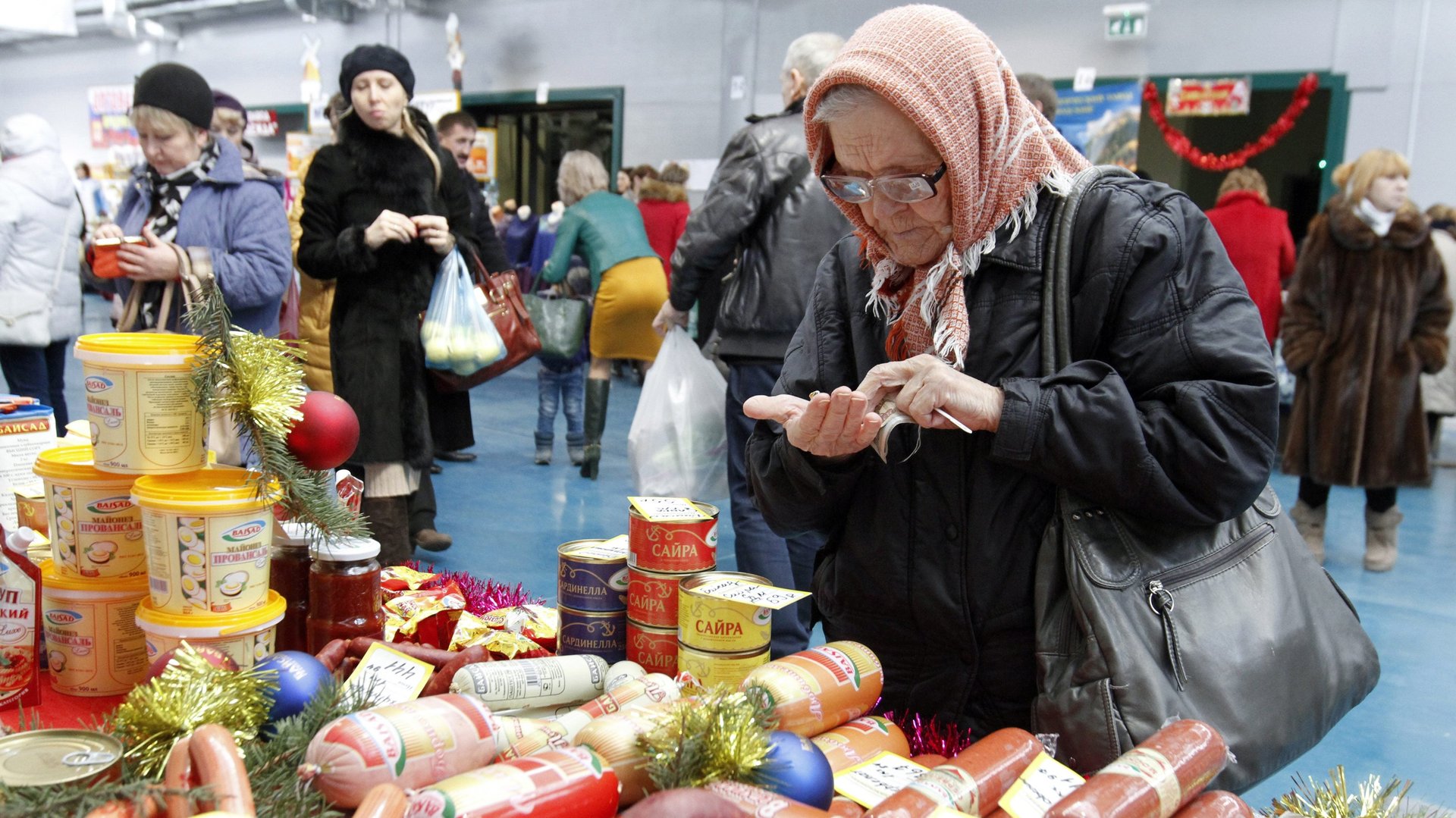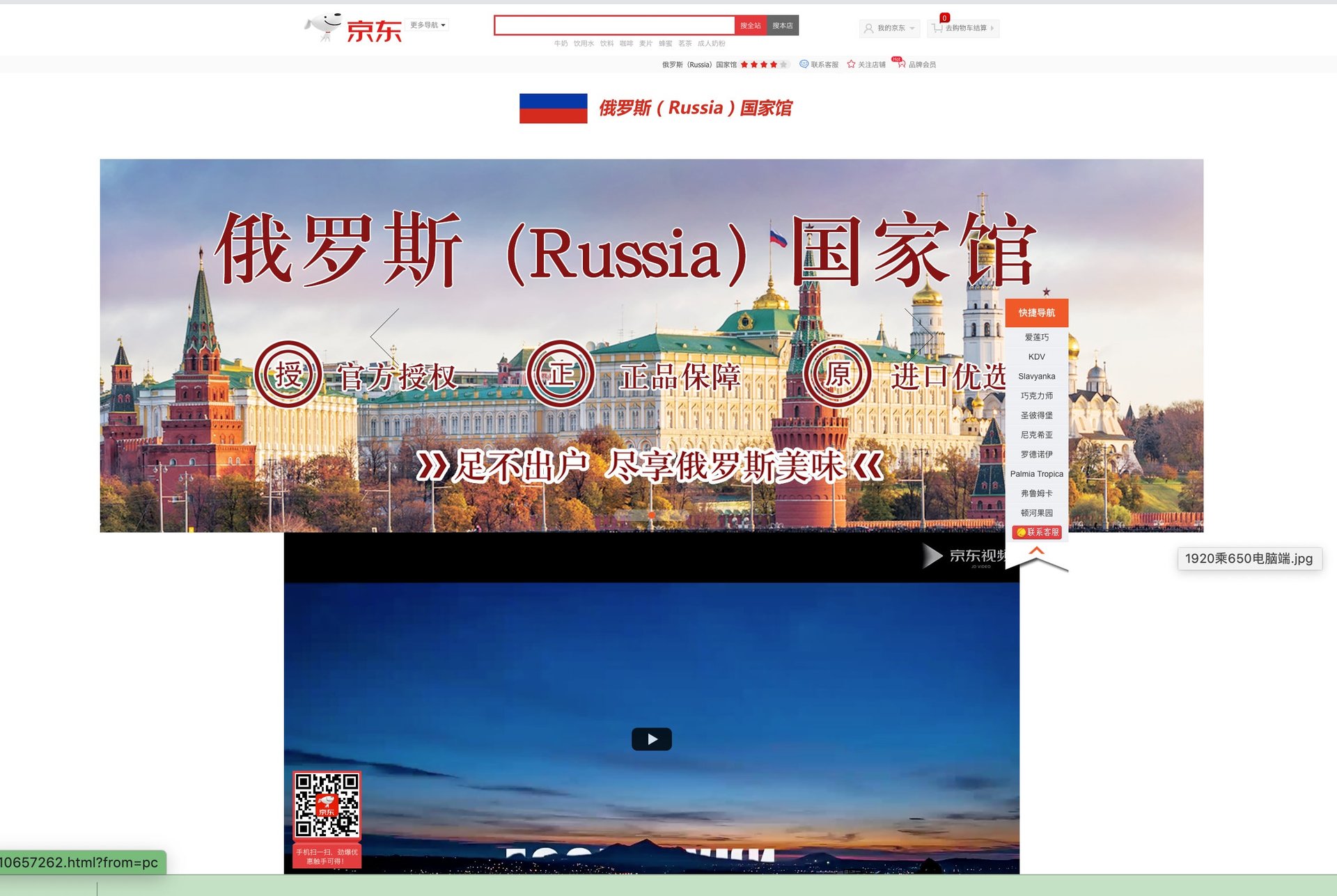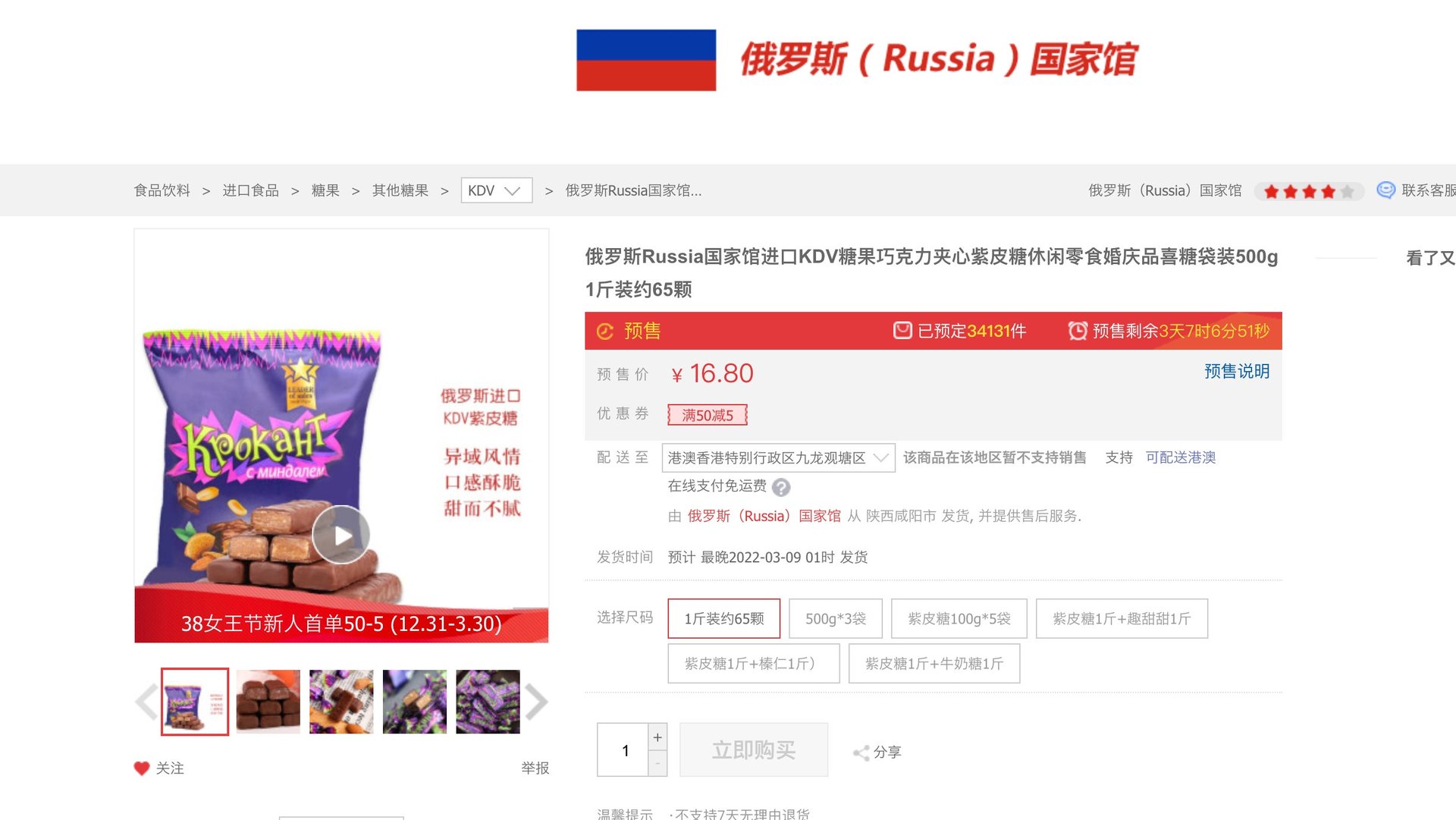A Russian e-commerce store in China is suddenly seeing brisk business
While western countries are imposing harsh sanctions on Russia for its invasion of Ukraine, some in China are showing their support for Moscow by snapping up goods from a Russian e-commerce store.


While western countries are imposing harsh sanctions on Russia for its invasion of Ukraine, some in China are showing their support for Moscow by snapping up goods from a Russian e-commerce store.
As China continues to refrain from criticizing Russia over its actions in Ukraine, where Russia’s military operations entered their seventh day, pro-Moscow voices have become a strong presence on the Chinese internet. While Chinese social media platforms such as short video app Douyin have removed tens of thousands of accounts and comments spreading fake information and provocative content about the crisis, empathetic and anti-war messaging from Chinese citizens has also been censored or muffled by the authorities.
Recently, internet users are flocking to (link in Chinese), the National Pavilion of Russia, an online shop mainly selling Russian food products on Chinese e-commerce platform JD.com, according to Chinese nationalist outlet Guancha. According to the registration information on JD.com, the shop is under a China-foreign joint venture whose legal representative is Sergey Batsev, a China representative for Business Russia, an organization representing the country’s small and medium entrepreneurs outside the commodities sector. The shop is the only e-commerce platform backed by the Russian embassy in China, according to a 2021 report from Shaanxi Daily, a news outlet supervised by the Communist Party branch of Shaanxi province.

The shop offers goods like Russian-branded chocolate cookies for 16.8 yuan ($2.7), mineral water for 20 yuan, and fruit juice for 70 yuan.

Currently, most of the products in the shop are sold out, prompting the outlet to put up a video in which Sergey thanked Chinese shoppers for their support for Russia “at a difficult time like this.” “In this complex and changing international situation, we see the friendship of our old Chinese friends,” he said in the video, which was released yesterday (March 2), according to Guancha. Sergey also urged Chinese customers to “shop rationally.”
In response, some users joked that this is their way of sanctioning Russia, to snap up the country’s snacks so Russians couldn’t get it themselves. “Could they get Putin to sell the products on a livestream? That way my shopping desire will inflate,” said another.
In China, where there are few allowed forms of activism, citizens often express their political stances through rejecting or purchasing certain goods. Last year, brands like Nike and H&M faced boycotts from Chinese consumers for their pledges to not to use cotton from Xinjiang over forced labor concerns.